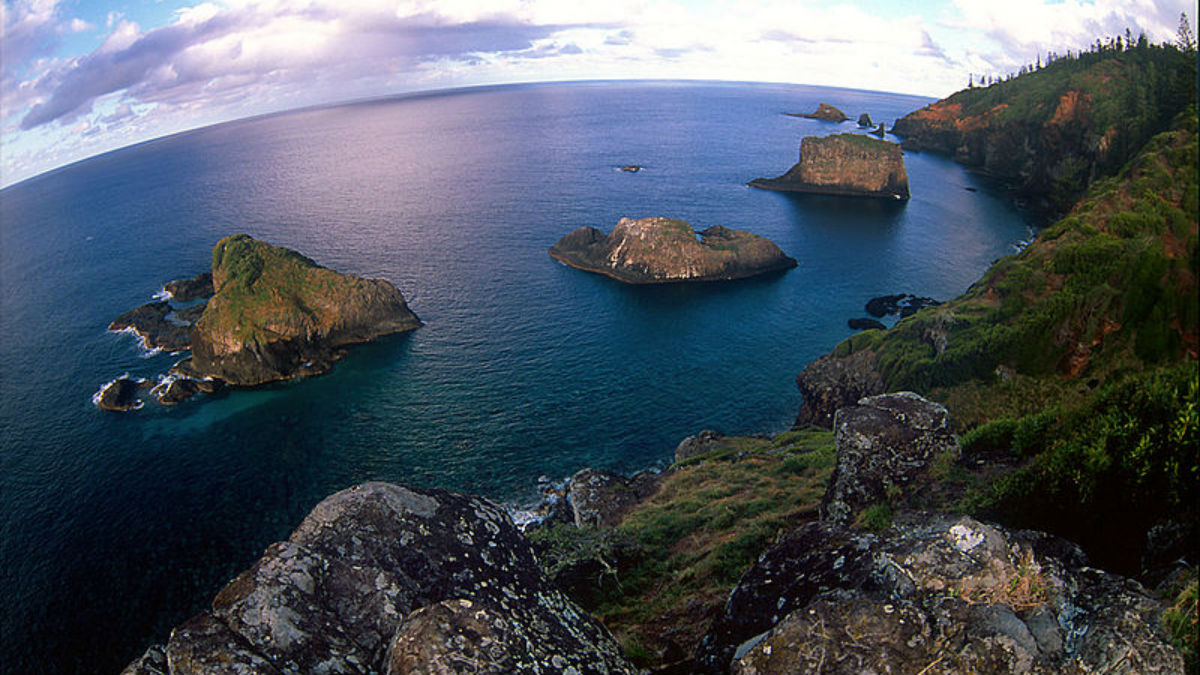Mutiny on Norfolk Island: The battle against Australian rule
Residents fight to retain control of tiny South Pacific land after Canberra says self-governance has failed

A free daily email with the biggest news stories of the day – and the best features from TheWeek.com
You are now subscribed
Your newsletter sign-up was successful
Hundreds of people on Norfolk Island have been protesting against the Australian government's plans to take back control of the tiny territory in the South Pacific.
"After 36 years of democracy, their self-governance has been abolished," human rights lawyer Geoffrey Robertson writes in The Guardian. "Their autonomy and their identity are being destroyed – they have even been told to stop singing God Save the Queen."
What has been happening?
The Week
Escape your echo chamber. Get the facts behind the news, plus analysis from multiple perspectives.

Sign up for The Week's Free Newsletters
From our morning news briefing to a weekly Good News Newsletter, get the best of The Week delivered directly to your inbox.
From our morning news briefing to a weekly Good News Newsletter, get the best of The Week delivered directly to your inbox.
Norfolk Island, which lies about 1,000 miles north-east of Sydney, was granted self-rule in 1979. Nearly half of its 2,000 inhabitants are descended from nine British sailors from HMS Bounty and their Tahitian wives who moved there from Pitcairn Island after the infamous mutiny.
Some of them are now staging another uprising, this time against plans to take away their self-governance. The island's legislative assembly has already been dismantled and the island will be brought under the complete control of the Australian government from 1 July.
"They've locked up the parliament and sent administrators from Canberra to run the place, even though it's been running itself perfectly well for a long time," said Robertson.
Islanders have occupied the grounds of the former parliament while last month, Robertson presented a petition to the United Nations in New York in a last-ditch attempt to force Australia to backtrack. However, he warns that there is little else the islanders can do.
A free daily email with the biggest news stories of the day – and the best features from TheWeek.com
What does Australia say?
Canberra argues that the island has been struggling to manage its finances since the global recession and the move will allow the islanders access to Australian health and welfare payments for the first time, as well as providing a significant boost to its struggling economy. In exchange, they will be forced to pay income tax for the first time.
"For several decades, Norfolk Island has operated under an experimental system of self-government used nowhere else in Australia," writes Paul Fletcher, the minister for major projects, territories and local government, in the Sydney Morning Herald. "The result of the experiment is clear – it has not worked well. The local administration is unable to deliver the range or standard of services that Australians rightly expect from their governments."
What do the islanders say?
Some accuse Canberra of re-colonising their land and say they have no connection to the mainland. "We're islanders, we're descendants from Tahiti and 17th-century Englishmen, we're not from Australia," one local told The Guardian. "They can try as hard as they like but they can't take out the blood that runs through our veins."
However, the paper points out that it is difficult to judge how many people are against the change. "Many seem afraid to express their support for the Australian government," it says. "This makes it difficult to tell whether the anger is a widespread sentiment or the opinion of a small but noisy minority."
One islander said he supported giving control back to Canberra. "At least with Australia behind us things will actually get done," he said. "Like our roads. They're all buggered."
-
 The environmental cost of GLP-1s
The environmental cost of GLP-1sThe explainer Producing the drugs is a dirty process
-
 Greenland’s capital becomes ground zero for the country’s diplomatic straits
Greenland’s capital becomes ground zero for the country’s diplomatic straitsIN THE SPOTLIGHT A flurry of new consular activity in Nuuk shows how important Greenland has become to Europeans’ anxiety about American imperialism
-
 ‘This is something that happens all too often’
‘This is something that happens all too often’Instant Opinion Opinion, comment and editorials of the day
-
 Epstein files topple law CEO, roil UK government
Epstein files topple law CEO, roil UK governmentSpeed Read Peter Mandelson, Britain’s former ambassador to the US, is caught up in the scandal
-
 Iran and US prepare to meet after skirmishes
Iran and US prepare to meet after skirmishesSpeed Read The incident comes amid heightened tensions in the Middle East
-
 Israel retrieves final hostage’s body from Gaza
Israel retrieves final hostage’s body from GazaSpeed Read The 24-year-old police officer was killed during the initial Hamas attack
-
 China’s Xi targets top general in growing purge
China’s Xi targets top general in growing purgeSpeed Read Zhang Youxia is being investigated over ‘grave violations’ of the law
-
 Panama and Canada are negotiating over a crucial copper mine
Panama and Canada are negotiating over a crucial copper mineIn the Spotlight Panama is set to make a final decision on the mine this summer
-
 Why Greenland’s natural resources are nearly impossible to mine
Why Greenland’s natural resources are nearly impossible to mineThe Explainer The country’s natural landscape makes the task extremely difficult
-
 Iran cuts internet as protests escalate
Iran cuts internet as protests escalateSpeed Reada Government buildings across the country have been set on fire
-
 US nabs ‘shadow’ tanker claimed by Russia
US nabs ‘shadow’ tanker claimed by RussiaSpeed Read The ship was one of two vessels seized by the US military